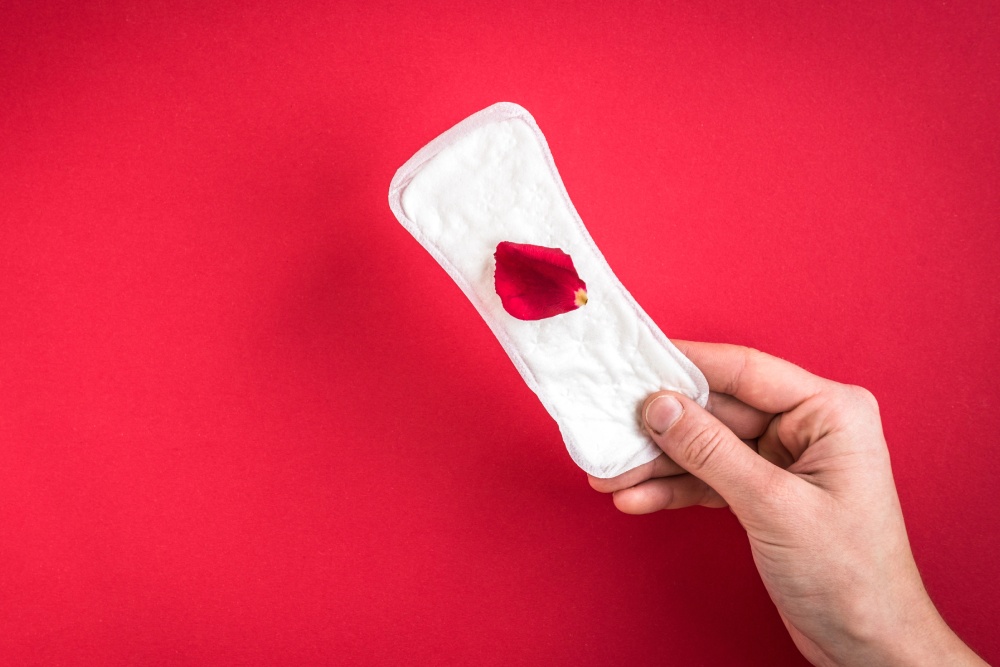What Causes High Blood Pressure During Pregnancy
Published on 02/18/25
High blood pressure during pregnancy is a concern for many expectant mothers. You might wonder, what causes high blood pressure during pregnancy? It’s important to understand the various factors that can lead to high blood pressure (also called hypertension) during pregnancy and the potential risks it can have for both mother and baby.
Recognizing the signs early and understanding the underlying causes can help you take proactive steps to manage it effectively. This helps assure a healthier pregnancy for both you and your baby.
What Is High Blood Pressure During Pregnancy?
High blood pressure during pregnancy can be defined as a blood pressure reading of 140/90 mm Hg or higher, measured on two separate occasions at least four hours apart. If left untreated, high blood pressure can lead to more serious complications like preeclampsia, premature birth, or low birth weight.
There are two common types of high blood pressure during pregnancy:
- Chronic Hypertension: This type of high blood pressure exists before pregnancy or develops during the first 20 weeks of pregnancy. Women who already have high blood pressure before getting pregnant are at a higher risk.
- Gestational Hypertension: This type develops after the 20th week of pregnancy and typically resolves after the baby is born. While it may not cause immediate concerns, it still requires monitoring to avoid complications like preeclampsia.
Factors That Contribute to High Blood Pressure During Pregnancy
Preexisting Health Conditions:
Certain health conditions can increase your risk of developing high blood pressure during pregnancy. These conditions include:
- Chronic Hypertension: If you already have high blood pressure before pregnancy, you are at a greater risk for developing high blood pressure during pregnancy. It is important to work with your healthcare provider to keep it under control before and during pregnancy.
- Kidney Disease: Kidney problems can cause fluid buildup in the body, increasing blood pressure. Women with kidney disease should be closely monitored during pregnancy.
- Diabetes: Both type 1 and type 2 diabetes can increase the risk of high blood pressure. Uncontrolled blood sugar can damage blood vessels and kidneys. This can lead to hypertension.
- Obesity: Being overweight or obese can cause an increase in blood pressure. Excess weight puts strain on the heart and can lead to fluid retention and other complications.
Age and Pregnancy History
Age and pregnancy history are also important factors when considering what causes high blood pressure during pregnancy.
- First Pregnancy: Women who are pregnant for the first time are at a higher risk of developing high blood pressure. Their bodies may take time to adjust to the demands of pregnancy.
- Age: Women who are under 20 or over 40 may be at an increased risk for high blood pressure during pregnancy. Women over 35 are at higher risk for complications like preeclampsia. This can lead to high blood pressure.
- Multiple Pregnancies: If you’re carrying twins or multiples, your risk of high blood pressure increases. The strain on your body is greater. The chances of complications like gestational hypertension rise.
Lifestyle Factors
Certain lifestyle habits can play a role in what causes high blood pressure during pregnancy. Your daily habits and choices can affect your blood pressure, both positively and negatively.
- Diet: A diet high in sodium (salt) can lead to fluid retention, which increases blood pressure. It’s important to eat a balanced diet rich in fruits, vegetables, and whole grains while limiting your intake of salty foods.
- Physical Activity: Regular physical activity can help manage weight and improve overall heart health. Lack of exercise can contribute to the development of high blood pressure. For that reason, aim for moderate exercise, like walking, throughout your pregnancy.
- Stress: Chronic stress can affect your overall health and contribute to high blood pressure. Learning how to manage stress through relaxation techniques like yoga, meditation, or deep breathing exercises can be beneficial for both you and your baby.
- Tobacco and Alcohol: Smoking and excessive alcohol consumption can raise blood pressure. These habits also carry other serious risks for pregnancy, such as preterm labor, low birth weight, and developmental delays. Quitting smoking and avoiding alcohol during pregnancy is necessary for your health and your baby’s well-being.
Hormonal Changes
Pregnancy causes significant hormonal changes in your body. These changes can contribute to high blood pressure in some cases, especially if you are already predisposed to hypertension. In some cases, the placenta may not function properly and lead to high blood pressure.
This is often seen in preeclampsia, where the placenta doesn’t get enough blood, and the body reacts by increasing blood pressure. Hormonal changes during pregnancy can affect the blood vessels and cause them to become constricted or damaged. This can lead to increased resistance to blood flow and, as a result, higher blood pressure.
Preexisting Hypertensive Disorders
Some women have high blood pressure as a preexisting condition but may not be diagnosed until pregnancy. It’s important to identify and monitor these conditions early to avoid complications.
- Preeclampsia: One of the more serious causes of high blood pressure during pregnancy is preeclampsia. This condition can lead to organ damage and other complications for both the mother and baby. Symptoms of preeclampsia include high blood pressure, protein in the urine, and swelling in the hands and face. It’s important to see a healthcare provider if you suspect this condition.
- Eclampsia: Eclampsia is a severe form of preeclampsia that can lead to seizures and other life-threatening complications. Eclampsia is rare, but it’s critical to monitor for signs of preeclampsia and take steps to manage it.
Genetics
Your family history plays a significant role in what causes high blood pressure during pregnancy. If you have a family history of hypertension, diabetes, or other cardiovascular diseases, you may be more likely to develop high blood pressure during pregnancy. Genetics is an important factor in understanding your risk.
Environmental Factors
Your environment can also impact your risk of developing high blood pressure during pregnancy. Air pollution, extreme heat, and other environmental stressors can contribute to high blood pressure. It’s important to create a calm and healthy environment for yourself, especially when you’re expecting.
Pregnancy-Related Conditions
Some pregnancy-related conditions increase the risk of high blood pressure. Conditions such as gestational diabetes, polyhydramnios (excess amniotic fluid), or placenta previa (where the placenta covers the cervix) can lead to higher blood pressure. It’s important to monitor these conditions closely to reduce the impact on your health.
What Happens If You Have High Blood Pressure During Pregnancy?
High blood pressure can lead to serious complications for both you and your baby. If left untreated, high blood pressure during pregnancy can lead to:
- Preeclampsia: A potentially life-threatening condition that can lead to organ damage, seizures, and premature birth.
- Premature Birth: High blood pressure can increase the risk of early labor and delivery, which may require a preterm birth.
- Placental Abruption: A serious condition where the placenta separates from the uterine wall. This leads to heavy bleeding and risk to the baby.
- Low Birth Weight: High blood pressure can affect the baby’s growth, leading to low birth weight.
- Organ Damage: If high blood pressure is not managed, it can lead to long-term organ damage for the mother, particularly in the heart, kidneys, and liver.
It’s important to follow your doctor’s recommendations and attend regular checkups to manage blood pressure levels and avoid complications.
How to Manage High Blood Pressure During Pregnancy
Managing high blood pressure during pregnancy is key to maintaining both your health and your baby’s health. While high blood pressure can lead to complications, there are several steps you can take to keep it under control.
Here’s what you can do:
Monitor Your Blood Pressure Regularly
Regular monitoring of your blood pressure is one of the most important steps in managing hypertension during pregnancy. Your healthcare provider will likely recommend frequent checkups to track your blood pressure levels. With an eye on your numbers, your doctor can adjust treatment plans as needed to ensure your health is well-managed.
Take Medications as Prescribed
If your doctor prescribes medication for high blood pressure, make sure to follow the instructions carefully. Certain medications are safe during pregnancy and can help lower blood pressure. These medications are aimed at preventing complications such as preeclampsia or stroke.
Adopt a Healthy Diet
What you eat can have a significant impact on your blood pressure. A healthy, balanced diet can help manage high blood pressure and keep you feeling your best. Focus on eating more fruits and vegetables, reducing sodium intake, and including lean protein and whole grains.
Avoid processed foods and limit your intake of foods high in sodium and unhealthy fats. They can contribute to high blood pressure.
Exercise Regularly
Physical activity is another great way to help keep blood pressure in check. Aim for at least 30 minutes of moderate exercise most days of the week. Walking, swimming, or prenatal yoga are excellent options for pregnant women.
Manage Stress Effectively
Chronic stress can lead to higher blood pressure. Finding ways to manage stress can make a big difference in how well you manage high blood pressure during pregnancy. Taking time to relax and unwind each day is important for both your physical and mental health during pregnancy.
Get Plenty of Rest
Getting enough rest and sleep is also vital for managing blood pressure. Pregnancy can be exhausting, especially when you’re dealing with high blood pressure. Aim for at least 7-9 hours of sleep each night.
Stay Hydrated
Drinking enough water is key to maintaining proper blood flow and regulating blood pressure. Staying hydrated also helps reduce swelling and prevents dehydration, which can worsen high blood pressure.
Avoid Smoking and Alcohol
Smoking and alcohol consumption can harm your health, especially during pregnancy. Both habits can raise blood pressure and lead to complications. It’s important to avoid them completely during pregnancy for your safety and the safety of your baby.
Managing high blood pressure during pregnancy is not only possible. However, it is also important for the health of both you and your baby. If you are dealing with high blood pressure during pregnancy, we at Rosh Maternal & Fetal Medicine are here to help you every step of the way.
Our team is dedicated to providing personalized care. We will deliver the support you need to manage high blood pressure and other pregnancy-related conditions.
The information provided in this article should not be taken as medical advice. Please contact a healthcare professional before making any medical decisions. Don’t hesitate to reach out to us at Rosh Maternal & Fetal Medicine for guidance, pregnancy care, and expert OB/GYN services.




